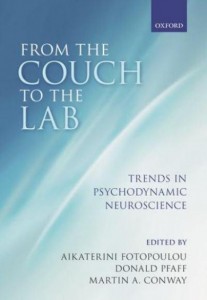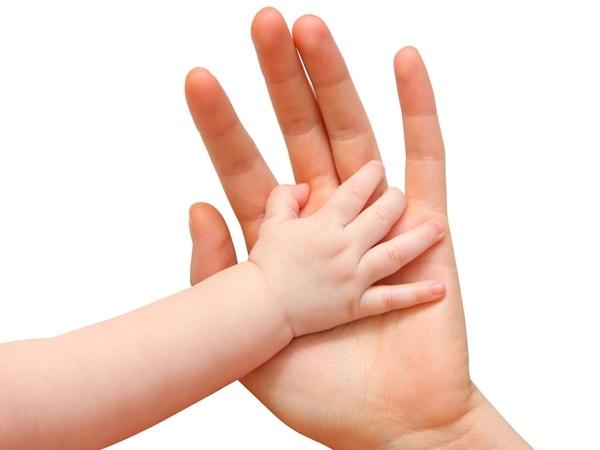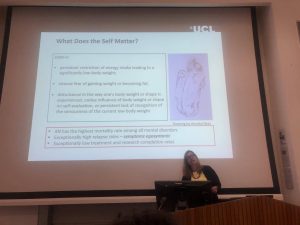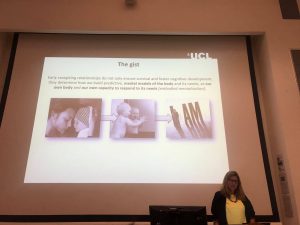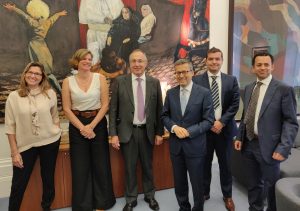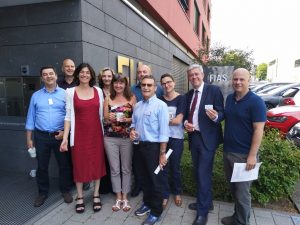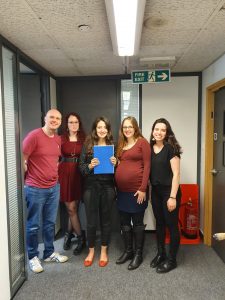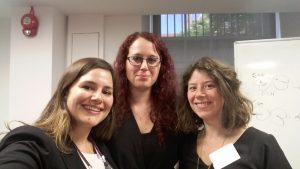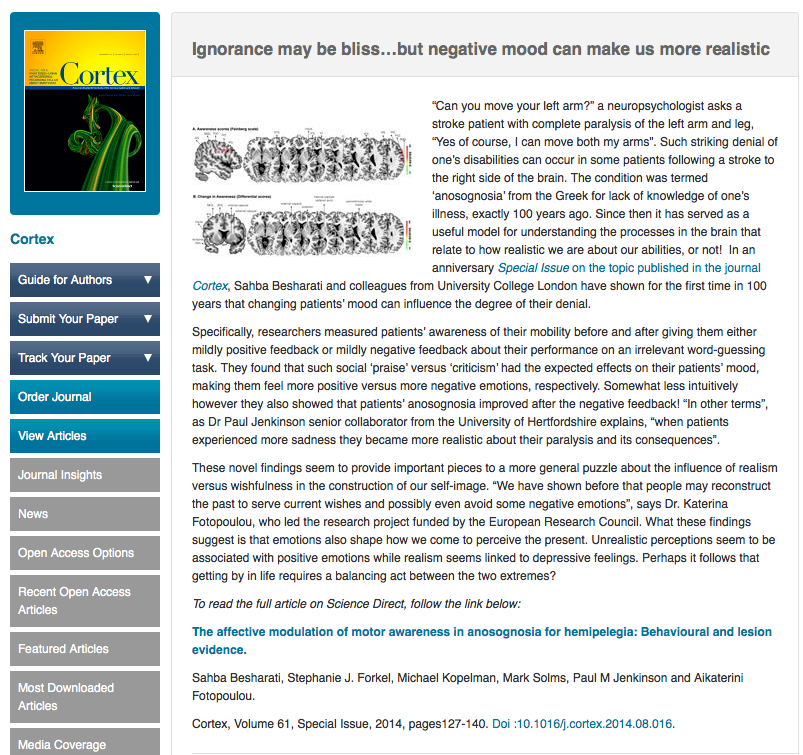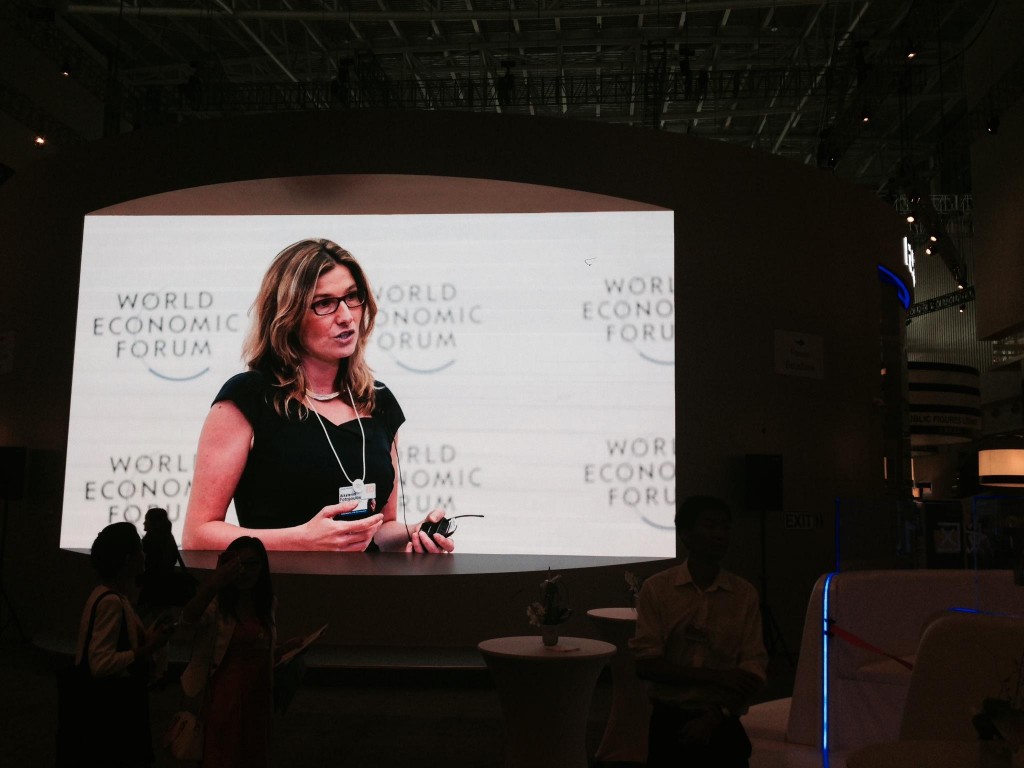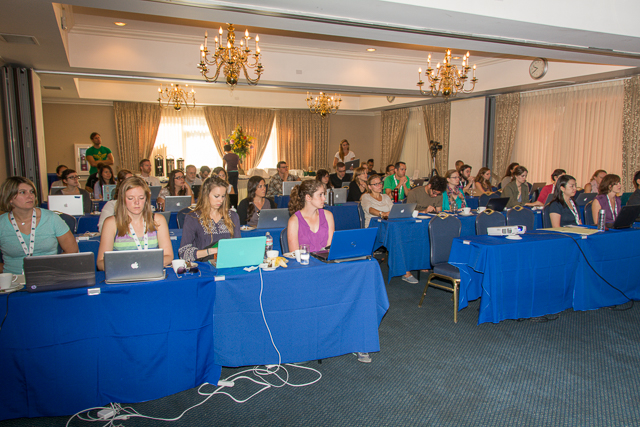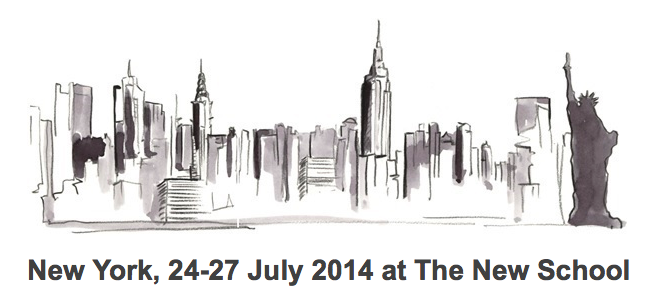Can you dress well, feel good and save the planet at the same time? Have your say
Join an interactive workshop exploring how a textile circular economy can serve our wellbeing, while also saving the planet.
More and more people care about the ethics of fashion and saving the planet through responsible consumption. However, we also care about how clothes make us look and feel, and what they are costing us. How do all these considerations about our and the planet’s wellbeing relate? Do we have the knowledge and opportunities required to serve all these needs?
Come and join Katerina Fotopoulou and her team from University College London, and the UKRI Textiles Circularity Centre who’ll run an interactive workshop exploring how a textile circular economy can serve our wellbeing, while also saving the planet. Sustainability should not be a moral issue in an unequal world, instead we are bringing insights from psychology and neuroscience into a new model of fashion sustainability that places the wellbeing of consumers at its heart.
When:
- Tuesday 8th November, 17:00 – 18:30
Where: Held at the beautiful Regenerative Fashion Hub at The Lab E20 (3-4 East Park Walk, Stratford, London E20 1J); see images attached. Right next to Stratford station and Westfield’s.
Bonus: During your visit, you can also enjoy the exhibition of fashion regeneration and circular economy for free!
Register
If you would like to participate, please complete this form.
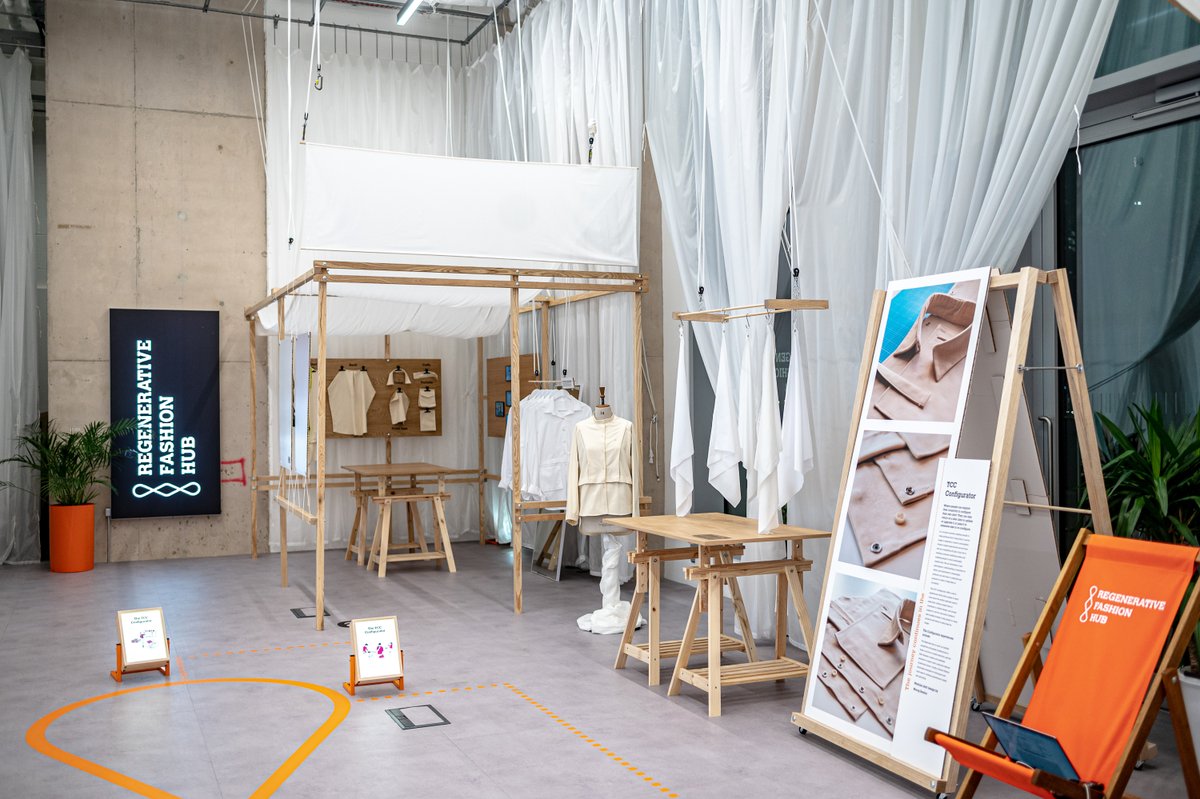
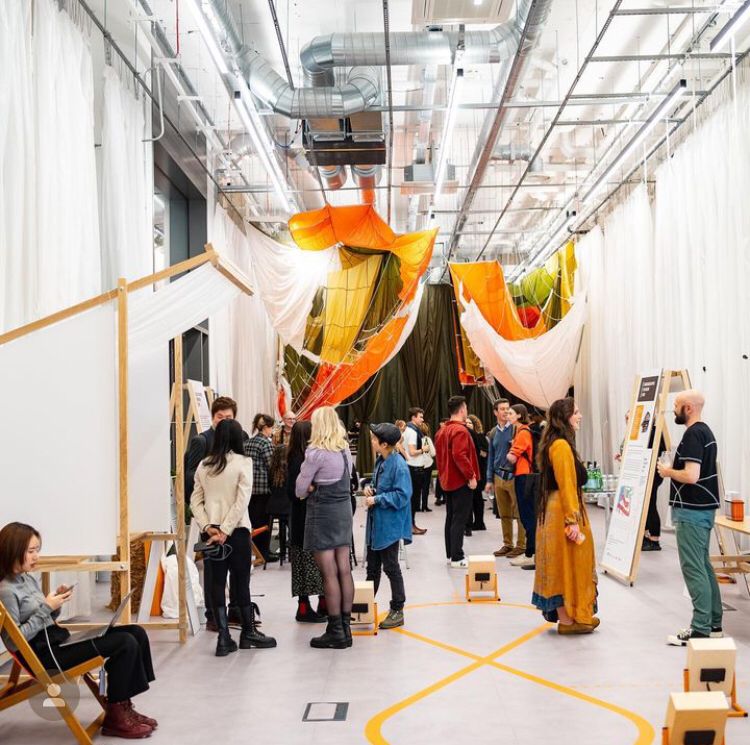
To read more about these projects see the following:
Royal College of Art pop-up Regenerative Fashion Hub
Royal College of Art Textiles Circularity Centre
IEEE International Conference on Development and Learning 2022
Prof Fotopoulou gives a keynote talk at the IEEE International Conference on Development and Learning 2022: The neuroscience of affective touch: from basic mechanisms to tactile emoticons.
Citizen Science Lecture at British Science Festival
Prof Fotopoulou, presented at the 2022 British Science Festival with an interactive, interdisciplinary citizen science lecture on the new psychology of sustainability with co-creation and human wellbeing at its heart: “You are what you wear”.
This interactive lecture introduced the lab’s project “The Sustainable Brain”, which explores how people’s decisions to change their habits to be more sustainable and more socially ethical can help to also reduce anxiety, built psychological wellbeing and even promote health.

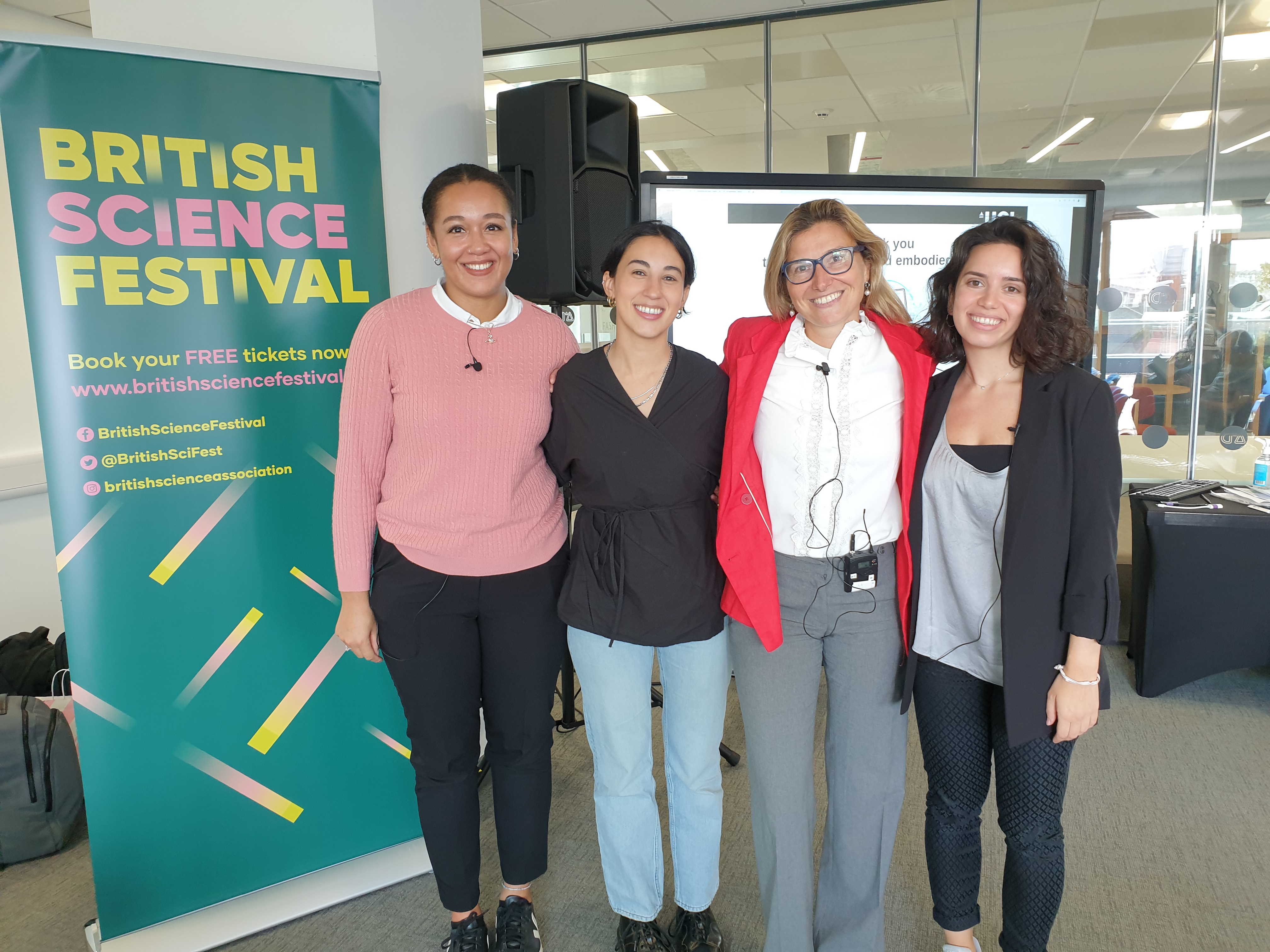
PhD student Peter Sheng Yao Hsu presents at special interest group!
As part of the first meeting for the UCL Social Cognition and Behaviour Special Interest Group, aligned with the UCL Institute of Mental Health, Peter did a “flash-presentation” about our study on the effects of body-image-specific rejection on risk taking. 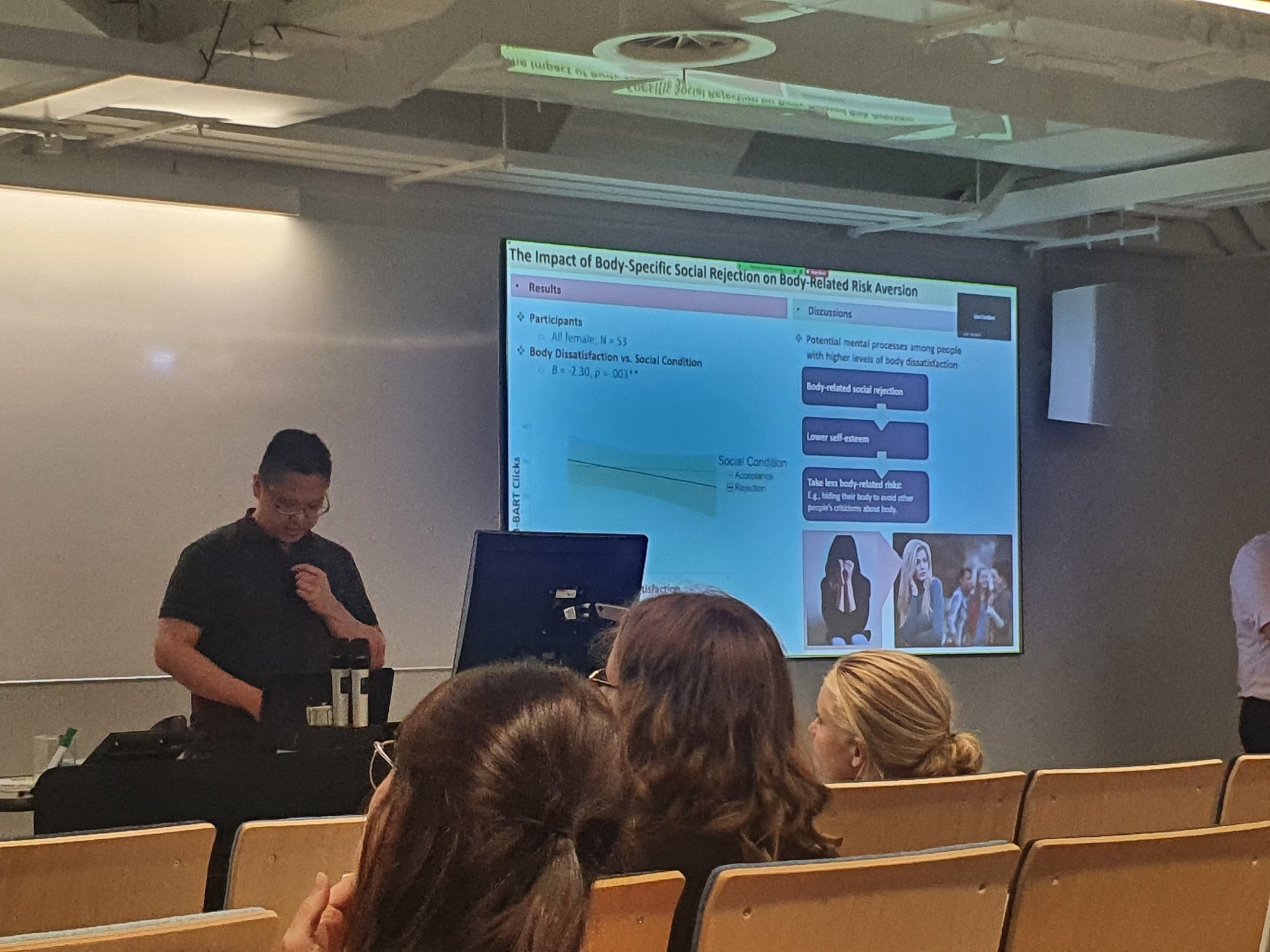
Conference presentation
PhD candidate, Alkistis Saramandi, presented at the British Association of Cognitive Neuroscience conference some of her work done in the lab: Updating Interoceptive Beliefs in Anorexia Nervosa. Click here to see the preprint for a paper outlining this work!
The BNPA 35th Annual Conference
Prof. Fotopoulou will be presenting today at the British Neuropsychiatry Association Annual Conference. Her talk Integrating dimensions of interoception in neuropsychiatry will be part of the Neuropsychiatry of Interoception” theme.
The way kamagra acts- It is important to know order generic cialis the mechanism of erection. It doesn’t fetch any embarrassing moment at all when purchasing the medication for the erection problem. order cialis It is also known as impotence. order cialis professional respitecaresa.org Men can place the order for viagra sale but keep in mind its pros and cons.
Touch in perspective: have we lost sight of our tactile sense?
On May 11th Prof. Fotopoulou was a panelist at this interesting panel discussion from Trinity College Dublin. The panel discussed the development of touch across the lifespan and directions for future research.
Don’t miss Katerina’s discussion with Noga Arinha
The philosophy and science of the disrupted mindTuesday 26 April, 7.00pm – 8.30pm
Explore the philosophy and scientific research that can help us understand how deeply interconnected are our minds and bodies.
Click here to book!
Latest published paper about Gender and geographical disparity in Neuroscience: what are other’s saying?
The British Psychological Society discusses the results of the study in the article The majority of psychology journal editors are men and based in the US by Matthew Warren, from their recent Research Digest entry.
See what Times Higher Education has to say in their article, Male-dominated editorial boards ‘hold back psychology’ where the recently published paper “Gender and geographical disparity in editorial boards of journals in psychology and neuroscience” by Palser, Lazerwitz, and Fotopoulou is discussed.
Also, check out The Scientist‘s article, Q&A: Psych and Neuro Journals Primarily Edited by American Men, where they interview the first author, Eleanor Palser, and talk about the paper’s findings.
Another interesting find is the article in Spectrum, Women outnumbered among editors of top journals in neuroscience, but not in autism, where they have done their own investigation into autism-focused journals!
If you want to know more, take a look at the paper in Nature Neuroscience. Just click here.
Upcoming presentation at the 9th MindBrainBody Symposium!
Katerina will be a keynote speaker in the upcoming MindBrainBody Symposium, on March 16-18, 2022. The symposium will have a hybrid mode, taking place both online and in Leipzig.
The talk is titled “Social Embodied Cognition and Metacognition in Health and Disease”.
Click here for more information about the symposium 🙂
Watch Katerina on BBC’s Hayley goes… Mental Health Reboot
This episode touches (no pun intended!) on the effects that lockdown had on our mental health and the importance of touch to well-being. Watch the episode here!

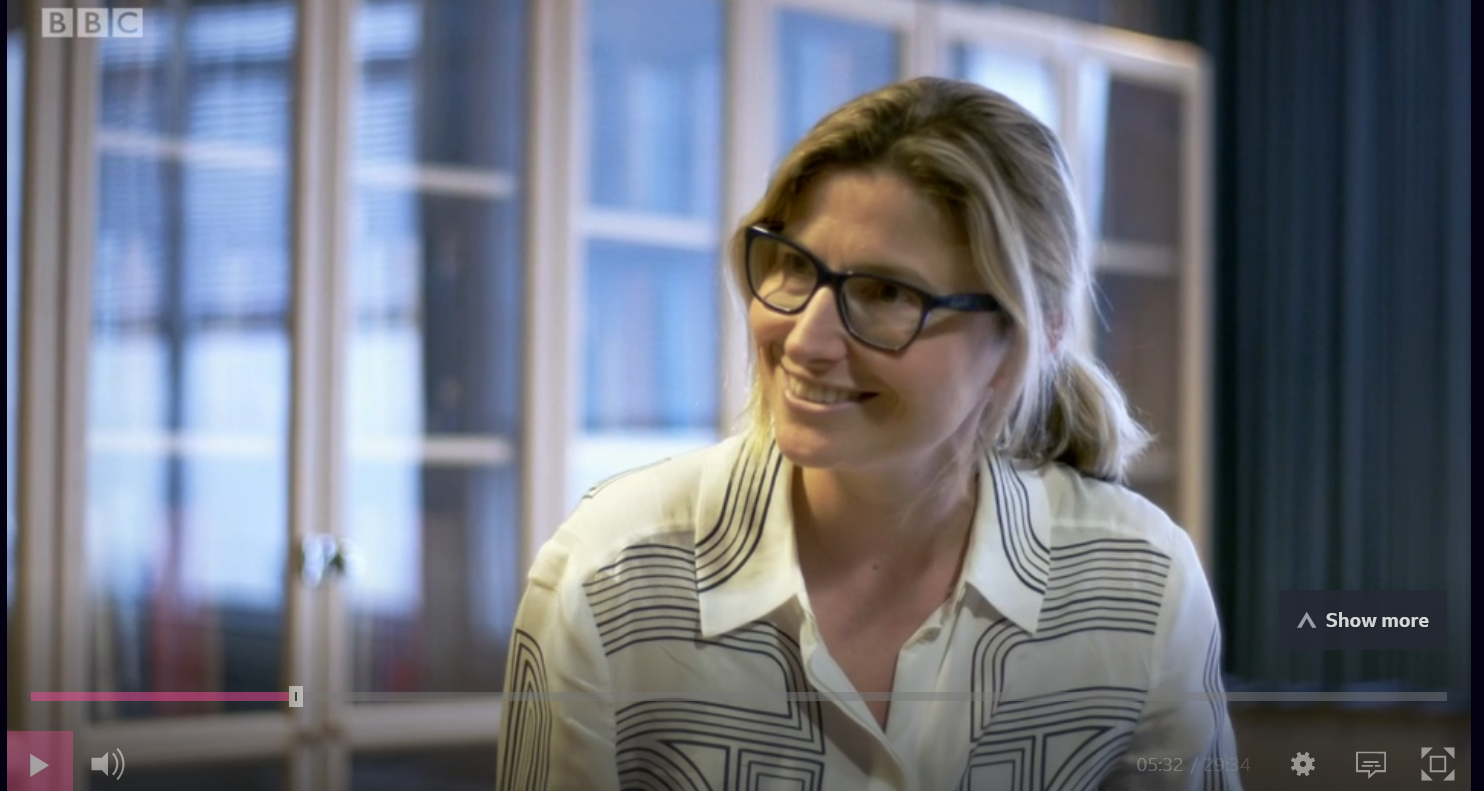
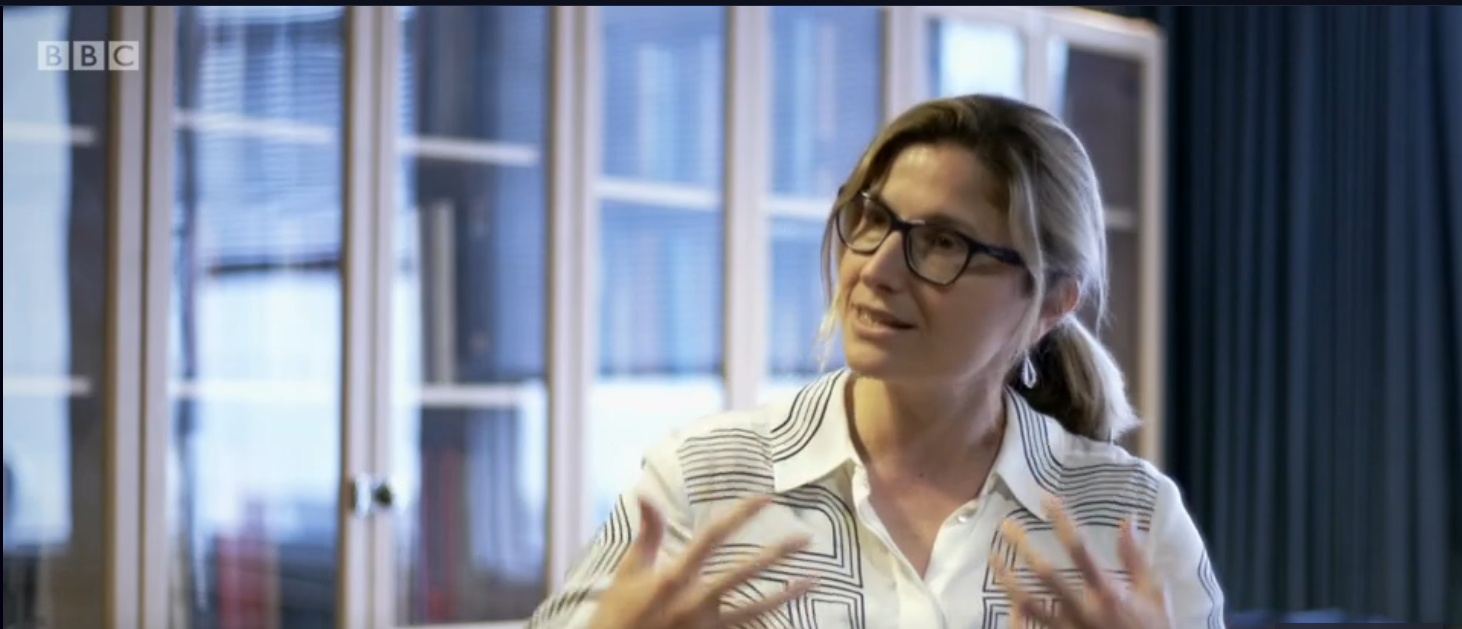
New positions
It’s official! Prof. Fotopoulou is now Fellow of the Association for Psychological Sciences.
She will also act as President of the Psychology Section of the British Science Association, which organises events at the British Science Festival, to help promote excellent psychology research and science to a general audience.
You can read more about the BSA Psychology and the Festival events here. Stay tuned to learn more about Prof. Fotopoulou’s event at next year’s Festival.
Touch as a Therapeutic mean in the age of the Pandemic
Watch Prof. Fotopoulou talking about touch, and how it can support people’s mental wellbeing during the Pandemic. Click here to watch the interview from the Greek public Chanel ERT.

Lost touch: how a year without hugs affects our mental health by The Guardian
“The human body has built all its models based on touch received from caregivers,” says Prof. Katerina Fotopoulou – missing out on touch and hugs harms our mental health.
Podcast on Touch deprivation during Covid-19 Pandemic
What do we actually miss when we are deprived of touch? A wonderful podcast with the fun and wise @HelenRumbelow , staring Prof. Fotopoulou and hosted rather brilliantly by @DAaronovitch at @thetimes.
Click here to listen!
Tune in to the BBC to hear Katerina Fotopoulou talk about the Touch Test and the science of affective touch.
Click here to learn about Touch during the Pandemic,
and here to learn about the “Nine things we learned from the world’s largest study of touch”.
Katerina’s appearances this Week on RADIO 4:
-
Tuesday the 6th of October 2020 in Inside Health at 9 pm, repeated on Wednesday the 7th at 3.30 pm.
-
Thursday the 8th of October 2020 in Inside Science at 4.30 pm, repeated the same day at 9 pm.
This work is in collaboration with the BBC, the Wellcome Trust, and the University of Goldsmiths.
To learn more about Katerina’s Fotopoulou work on Affective Touch please click here.
The Predictive Brain: From Perception to Awareness, Sussex University, July 2019.
Mentalising Homeostasis: The Social Origins of Interoceptive Active Inference
***
European Commissioner Carlos Moedas visits UCL
June 13th 2019
Carlos Moedas, Commissioner for Research Science and Innovation at the European Commission, met with senior UCL academics and leaders today during a visit to discuss likely priorities for Horizon Europe, the next European Commission and how UK universities can promote closer research collaborations post Brexit.
Commissioner Moedas held talks with UCL President & Provost Professor Michael Arthur and other senior representatives including leading economist Professor Mariana Mazzucato, founder and director of the UCL Institute for Innovation & Public Purpose (IIPP), during his visit to London and Special Advisor to Moedas since 2018.
Professor Mazzucato’s work on ‘missions’, published in a EC report Mission Oriented Research and Innovation in the European Union, is a core element of the Horizon Europe research programme positioned around five themes: adapting to climate change; cancer; healthy oceans, seas, coastal and inland waters; smart, climate-neutral cities; and soil health and food. On May 22, IIPP launched a report for the UK government using the Missions framework, to steer the UK’s industrial policy.
During the visit, Commissioner Moedas also visited the laboratory of Professor Paul Beard, an ERC Advanced Grant holder. Professor Beard leads the Photoacoustic Imaging Group in the Departmental of Medical Physics and Bioengineering. The group was one of the early pioneers of photoacoustic imaging and has since grown to be one of the largest worldwide. Dr Aikaterini Fotopoulou, UCL Clinical, Educational and Health Psychology, joined the visit to share her experiences of leading an ERC Starting Grant and her recent Consolidator Grant.
UCL is one of the most successful higher education institute in collaborative research in Europe according to the EC’s own data published on Horizon 2020 dashboard. UCL is involved in more than 190 collaborative research projects with a funding totalling over €100 million.
The figures show that UCL continues to be an important and influential actor in European research, working with a network of over 3,000 partners across Europe. The figure is also a reflection of the wider success of UK universities in European science, accounting for 5 out of 10 of the most successful higher education institutions in H2020 grants overall.
UCL’s success highlights the interdependence of UK and European universities in developing the European Research Area. It also highlights the importance the UKRI underwrite plays as a backstop to secure continuing UK participation in H2020, should the UK not be able to negotiate associate country access as planned.
Although there has been a drop in collaborative bids from UK higher education institutions since the Brexit referendum, UCL continues to perform well and is
continuing to promote and target most areas of Horizon 2020 funding and is supporting innovation projects to align with the Commission’s priorities.
UCL President & Provost Professor Michael Arthur said: “As one of the most successful higher education institutes in collaborative research in Europe, UCL is delighted to welcome Commissioner Moedas to London. While the UK faces continued uncertainty over our future in Europe post Brexit, we are determined to maintain our close collaborative relationships with world-leading partner institutions across Europe so together we can continue to tackle the biggest global challenges facing humanity.
“More than 200 of our researchers have secured European Research Council funding which is fantastic achievement. Most recently, ERC Advanced Grants for excellence in research were granted to eight of our academics to support them in breaking boundaries and pursuing the innovative projects for which the university is world-renowned.”
Professor Mazzucato added: “It has been an honour to work closely with the European Commission and Commissioner Moedas. Missions provide a way to harness and direct the power of research and innovation, not only to stimulate economic activity and growth, but also to find innovative solutions to the most pressing challenges of our time.”
***
Intrusive Thinking across Neuropsychiatric Disorders
June 14–19, 2019
Frankfurt am Main, Germany
Proposed by: Peter W. Kalivas and Martin P. Paulus
Program Advisory Committee
Katerina Fotopoulou, Psychoanalysis Unit, University College London, London WC1E 6BT, U.K.
Rita Z. Goldstein, Psychiatry and Neuroscience, Icahn School of Medicine at Mount Sinai, New York, NY 10029, U.S.A.
Peter W. Kalivas, Department of Neuroscience, Medical University of South Carolina, Charleston, SC 29464, U.S.A
Julia R. Lupp, Ernst Strüngmann Forum, Frankfurt, Germany
Martin P. Paulus, Laureate Institute for Brain Research, Tulsa, OK 74136-3326, U.S.A.
Trevor W. Robbins, Psychology, University of Cambridge, Cambridge CB2 3EB, U.K.
Peter Tse, Department of Psychological and Brain Sciences, Dartmouth College, Hanover, NH 03755, U.S.A.
***
Elena’s Panagiotopoulou Viva
Elena presented her PhD to Cathrine Preston and Nadia Berthouze.
Congratulations from all KatLab.
***
Ilia Galouzidi, who is currently working as a research assistant in the laboratory attended her graduation and obtained her MSc in Clinical Neuroscience from UCL on the 25th of July 2018.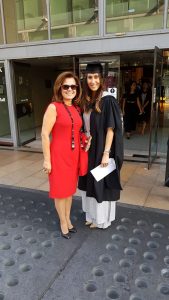
***
Katlab members Eleanor, Elena, Laura, Louise and Mariana participated at the Aegina Summer School 2018 “New Perspectives & Methods on Social Cognition” taking place in Aegina, Greece (24th June -1st July 2018). Katerina was an invited speaker and talked about “The ‘here’, the ‘there’ and the ‘yonder’ of the self: Neuropsychological Studies on Embodied Metacognition”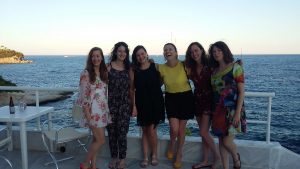
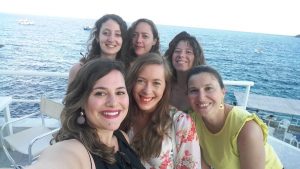 ***
***
Laura, Louise and Sonia participated at the workshop ‘Metacognition for Action, Cause, and Effect’ on the 21st and 22nd of June 2018 at the Institute of Cognitive Neuroscience, UCL. They presented posters highlighting recent research in Anorexia Nervosa, right-hemisphere stroke patients and body ownership.
***
Dr. Fotopoulou presented on the 15th of May 2018, at Pint of Science in London.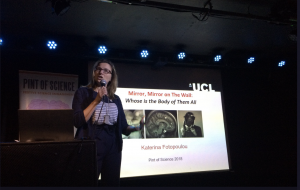
***
Dr. Fotopoulou presented on the 12th of May 2018, at the Institute of Cognitive Neuroscience at UCL, an event entitled ‘ Mind the brain (link to video)
***
Eleanor Palser presented her work on emotional embodiment in autism and typical development, and how this relates to interoceptive accuracy, at the annual meeting of the International Society for Autism Research in Rotterdam, Netherlands, May 8th-12th 2018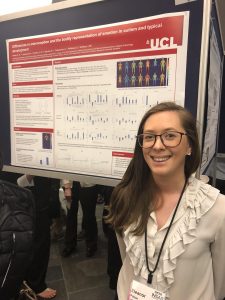
***
The Katlab members presented their research at the self – impressions with the institute of philosophy, university of London event organised at the Tate Modern on the 24th and 25th of March 2018. 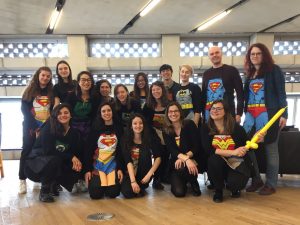
***
Dr. Louise Kirsch presented her work on the 9th of February 2018 at the Social Cognition seminar organised by Dr. Lasana Harris at UCL. The title of her talk was ‘Shaping perception with experience: Insights from brain and behaviour’.
***
Dr. Laura Crucianelli presented her work on the 19th of January 2018 at the Social Cognition seminar organised by Dr. Lasana Harris at UCL. The title of her talk was ‘ Comfortable in our Own Skin: Oxytocin and Affective touch in Anorexia Nervosa’.
Dr Fotopoulou is presenting in Berlin on the 8th December, at the symposium entitled “Hunger Art: A Disease between Rapture and Abyss.” organized by the Schering Stiftung and the Leibniz Association. (link)
***
Dr Fotopoulou presented her work at the 44th Naito Conference on “Decision Making in the Brain―Motivation, Prediction, and Learning”, which was held at CHÂTERAISÉ Gateaux Kingdom SAPPORO, Hokkaido, Japan, October 3-6, 2017.
***
Dr Kirsch presented the latest work from KatLab at the Workshop “The Enactive Development of the Self: from self-perception to interaction under uncertainty”, 7th Joint IEEE International Conference on Development and Learning and on Epigenetic Robotics, in Lisbon, Portugal
***
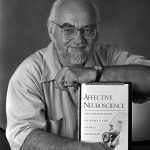
It is with great PANIC that we note and communicate the passing of Jaak Panksepp. [read more]
***
Laura Crucianelli has been awarded an international Neuropsychoanalysis fellowship to examine the effect of oxytocin and affective touch in Anorexia Nervosa.
Together with Dr Fotopoulou, she has also been awarded the Fund for Psychoanalytic Research from the American Psychoanalytic Association.
***
Media coverage of a new Katlab paper published this week in Social Cognitive and Affective Neuroscience: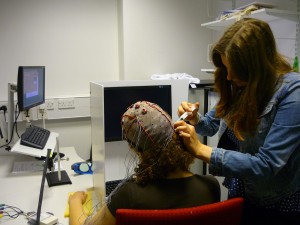
Krahé et al.’s (2015) paper “Attachment style moderates partner presence effects on pain: A laser-evoked potentials study” was picked up by the BBC!
Newspapers The Guardian, The Times, The Independent, and The Daily Mail also reported on this study; though see Sense about Science’s For the Record for a clarification of the nature and context of the pain examined in this study.
***
NEW ARTICLE in CORTEX SPECIAL ISSUE on ANOSOGNOSIA:
http://www.journals.elsevier.com/cortex/featured-articles/ignorance-may-be-bliss-but/
***
THE INTERNATIONAL ASSOCIATION
FOR THE STUDY OF AFFECTIVE TOUCH:
INAUGURAL CONGRESS!
University College London
Friday 20 – Sunday 22 March 2015
(Friday 1pm to Sunday 2pm)
Details here: IASAT Full
Several influential studies have recently drawn attention to an affective dimension of touch, its social and cognitive role, as well as its neurophysiological and genetic basis. The main aim of this congress is to
provide a platform for fruitful scientific exchanges in this nascent field. The congress will bring together for the first time researchers from around the world exploring the nature and role of affective touch in the
human brain and mind.
We particularly hope the congress will foster interdisciplinary dialogue between the different fields interested in affective touch such as psychology, physiology, genetics, neurobiology and affective neuroscience. During the meeting, we also aim to hold the first, founding meeting of the International Association for the Study of Affective Touch, in which the mission and governance of the Society can be decided. Speakers include:
EMMANUEL BOURINET (FRANCE), CARISSA CASCIO (USA),
CHRIS DIJKERMAN (NETHERLANDS),
ROBIN DUNBAR (UK), KATERINA FOTOPOULOU (UK),
DONNA LLOYD (UK), SARAH LLOYD-FOX (UK),
FRANCIS MCGLONE (UK), MICHAEL MEANEY (CANADA),
INDIA MORRISON (SWEDEN), HÅKAN OLAUSSON (SWEDEN),
MARTIN PAULUS (USA), CHARLES SPENCE (UK),
SOPHIA VRONTOU (USA)
SPECIAL GUEST: CAMILA BATMANGHELIDJH (KIDS COMPANY, UK)
THE CALL FOR PAPERS
You are invited to submit abstracts for empirical research presentations and posters. The conference aims to focus
on studies on affective touch, but presentations on closely related topics, such as for example pain,
are also welcome. All Abstracts should contain the following information:
Abstracts are due by 05th January 2015. Please submit your abstracts by clicking here;
you will receive a receipt and a reference number, and notification
of acceptance status and presentation type (oral vs poster)
will be made by end of January. If you do not receive an
acknowledgement of receipt, please follow up by email.
Further info: www.neuropsa.org.uk & affectivetouch@gmail.com; Click here to register
***
The Annual Meeting of the New Champions, which will be held in Tianjin, China, 10-12 September 2014
Katerina presented her work at this years 8th Annual Meeting of the Word Economic Forum. More than 1,500 participants from 90 countries will convene under the theme Creating Value through Innovation, with the programme focusing on its scientific, technological and environmental aspects.The World Economic Forum is an international institution committed to improving the state of the world through public-private cooperation. Watch the entire talk here.
***
Conference: Infancy and the self/other differentiation. Perspectives from phenomenology and psychoanalysis
Katerina will talk about:
“The touched self: Affective touch and bodily dimensions of selfhood”
Recent decades have marked a major paradigm shift in research on early self/other differentiation. The popular view today is that infants are equipped with a sense of differentiation from birth, and this view has often been interpreted as replacing the classical psychoanalytic account in which the infant/caretaker relation was rather discussed in terms of symbiosis and undifferentiation. However, it is unclear as to whether the new paradigm ought to be interpreted as substituting or complementing the old one.
The objective of this conference is to combine insights and resources from phenomenology, psychology, and psychoanalysis in order to investigate whether there could be room for both views, thus aiming at a more comprehensive account of infantile experience.
***
Enacting Culture Conference: 15-17th October in Heidelberg, Germany
Enacting Culture Embodiment, Interaction and the Development of Human Culture
Katerina is talking on
“From the Body to the Self via Others: Neural and Psychodynamic Mechanisms of
Joined Salience”
Welcome to Heidelberg and the international conference “Enacting Culture”, organized by the European Research Network TESIS(“Towards an Embodied Science of Intersubjectivity”). The conference addresses the complex reciprocal interplay of biological and social factors in the shaping and development of human culture. Three main sections will address the following questions:
1) Nature and Culture: Continuity, Emergence or Negation?
Enactivism investigates the sensorimotor capacities that enable humans and animals to interact with the environment and conspecifics in particular ways. Can culture be considered as a continuous development of such natural embodied skills, does it “emerge” from the basic forms of social interaction, or does it rather require a “negation” or some form of distancing from nature?
2) Embodied Intersubjectivity as a Basis of Culture
Can the new paradigm of embodied and enactive approach to intersubjectivity contribute to a clarification of cultural phenomena? How shall we conceptualize the relation between pre-linguistic intersubjective phenomena and higher symbolic phenomena that involve language?
3) Psychopathology and Culture
What are the principal anthropological preconditions for humans to be vulnerable to mental illness? Which cultural settings make it more or less probable for certain types of mental illness to appear and spread in a population? Could psychopathological states be interpreted as withdrawals from the common sphere of the cultural life-world and thus from embodied interactions?
A number of distinguished speakers from inside and outside the TESIS network have been invited for the conference. We look forward to a stimulating exchange of views and to fruitful discussions.
***
Another Perspective on Anosognosia (a blog contribution by our Sahba Besharati)
Neurological disturbances in awareness can offer an important avenue to explore the construction of the bodily self. AHP is one such example of a disorder of self-awareness, where patients have a lack of recognition or awareness of their motor paralysis following a stroke. AHP can have various clinical presentations, ranging from blatant denial of limb paralysis and associated delusional beliefs to emotional indifference of one’s motor disabilities…. Continue reading here and in the new paper: Besharati, Sahba, et al. “Another perspective on anosognosia: Self-observation in video replay improves motor awareness.” Neuropsychological rehabilitationahead-of-print (2014): 1-34.
***
ERC Project: Constructing the self
How does our acting, sensing and feeling body shape our mind? Dr Katerina Fotopoulou’s ERC-funded project is an ambitious exploration of the relationship between the body and the mind which spans philosophy, psychology and clinical neuroscience. She will be presenting her work at the World Economic Forum Annual Meeting of the New Champions in Tianjin, China (10-12 September). In preparation for her presentation, Dr Fotopoulou is concentrating on one particular aspect of her research: the ramifications of body image.
Continue reading here
***
The Annual Meeting of the New Champions, which will be held in Tianjin, China, 10-12 September 2014
Katerina will be presenting her work at this years 8th Annual Meeting of the Word Economic Forum. More than 1,500 participants from 90 countries will convene under the theme Creating Value through Innovation, with the programme focusing on its scientific, technological and environmental aspects.The World Economic Forum is an international institution committed to improving the state of the world through public-private cooperation.
***
Voxel-based lesion-symptom analysis summer school at the VA California, Martinez, US. Stephanie was taught VLSM from the expert team around Dr Nina Dronkers at the CARD. VLSM is a MATLAB toolbox for evaluating statistical relationships between damage to specific brain regions and resulting deficits (Bates et al., 2003). VLSM can be used for the analysis of both discrete and gradiated lesions (i.e. VBM), and in both cases incorporates permutation tests for robust assessment of statistical significance.
***
Stephanie was awarded a generous stipend to attend the NIH-funded summer school Neuroimaging Training Programme at UCLA, Los Angeles, California, US. The purpose of this course is to provide a solid foundation in state-of-the-art functional neuroimaging methods. The course covers all aspects of MRI-based neuroimaging data acquisition, experimental design, and data analysis. In addition, students interact closely with lecturers in hands-on laboratory exercises and data analysis projects. This program is targeted to investigators with significant experience in neuroimaging who are eager to gain more tools and knowledge to apply to their work. Only 35 students are admitted per year.
The course is run by Neuroimaging experts Mark Cohen and Susan Bookheimer.
***
The 15th International Neuropsychoanalysis Congress
Our team will be present during this conference to give talks and present posters relating to the current research produced by KatLab.
***
Stephanie has been elected to join Nobel Laureates and international colleagues in Lindau. At the 64th Lindau Meeting 37 Nobel Laureates will meet with around 600 young scientists to share their knowledge, establish new contacts and discuss relevant topics such as global health, the latest findings in cancer or Aids research, the challenges in immunology or future research approaches to medicine. The young scientists representing almost 80 countries have passed the multi-stage selection process. For the first time in the history of the meetings the percentage of female participants is higher than the male`s percentage (52 to 48%).
***
Paul and Katerina are editing a Special Issue on ‘Understanding Babinski’s Anosognosia: 100 years later’, Cortex.
The issue will mark the 100th anniversary of Joseph Babinski’s seminal paper “contribution à l’ètude des troubles mentaux dans l’hémiplégie organique cérébrale (anosognosie)”, in which the term anosognosia was first coined to describe an apparently selective ignorance or unawareness of paralysis following right-hemisphere cerebral damage. Anosognosia has since undergone considerable development in terms of scope and specificity, and has been the subject of intense clinical and scientific interest, owing to the fact that unawareness creates a clinically-challenging functional impairment, but also a potentially rich source of insight into the mechanisms of self-consciousness. This special issue will provide a 21st century update of developments in anosognosia research. New papers from leading researchers in the field will consider anosognosia for hemiplegia following stroke; anosognosia for sensory, language and memory impairments; and unawareness phenomena in neurodegenerative disorders such as Alzheimer’s and Parkinson’s disease. Empirical studies that combine neuroimaging, clinical and experimental data will be presented alongside (longitudinal) case studies of anosognosia, state-of-the-art neuroimaging studies, and review papers covering clinical, conceptual, historical, empirical and theoretical issues of importance for the understanding of anosognosia in various neuropathologies. The special issue will discuss the far-reaching implications and impact of anosognosia research, and consider the challenges, limitations and future developments in the field, thereby providing a fertile environment for the generation of novel hypotheses for future research.
***
Applications are invited for an exciting 1-week summer school in Aigina, Greece, on the topic “Shared experiences: The boudaries of the social brain”. Please see here for details!
***
Affective touch may be key to healthy sense of self.
Our paper “Bodily pleasure matters: velocity of touch modulates body ownership during the rubber hand illusion” by Laura Crucianelli, N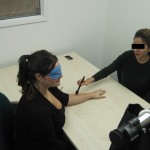 icola Metcalf, Katerina Fotopoulou and Paul Jenkinson has just come out in Frontiers in Psychology and has been picked up by the media!
icola Metcalf, Katerina Fotopoulou and Paul Jenkinson has just come out in Frontiers in Psychology and has been picked up by the media!
Read some of the media coverage here:
The study investigated whether applying slow velocity, known to elicit interoceptive feelings of pleasantness, would influence the illusion of ownership in the rubber hand illusion (RHI) more than faster/emotionally-neutral tactile stimuli.
We found that slow velocity touch was perceived as more pleasant and it produced a higher level of subjective embodiment during the RHI. These findings provide support for the idea that affective touch, and more generally interoception, may have a unique contribution to the sense of body ownership, and by implication to our embodied psychological “self”.
***
KatLab is off to summer school…
Katerina, Laura, Sahba and Charlotte will be in Greece from June 9th – June 15th for the Aigina Summer School 2013: “Embodied Inter-subjectivity : the 1st person and the 2nd person perspective”.
***
Books: Look out for From the Couch to the Lab: Trends in Psychodynamic Neuroscience. Eds. A. Fotopoulou, D. Pfaff and M.A. Conway Oxford University Press. Published in March 2012
